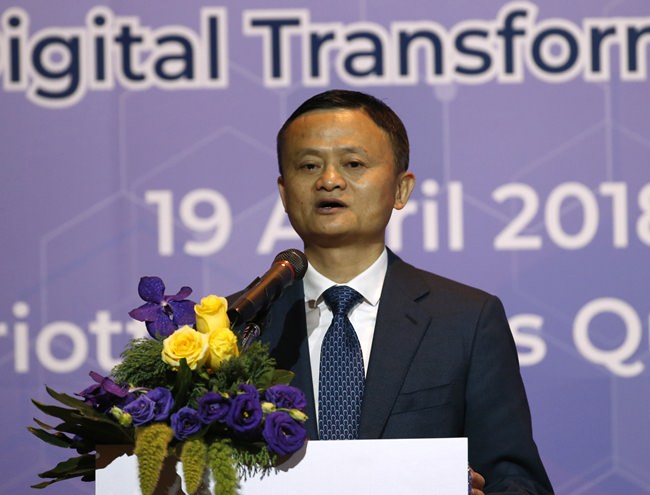
Bangkok (AP) — Chinese e-commerce giant Alibaba has agreed to step up investments in Thailand as competition between online retailers heats up in the Southeast Asian region.
 The founder of the online shopping giant, Jack Ma, met with prime minister Prayuth Chan-ocha on Thursday and later signed several agreements, including one to help set up a “smart digital hub” in the showcase Eastern Economic Corridor project, to facilitate trade between Thailand, China, Laos, Myanmar, Cambodia and Vietnam.
The founder of the online shopping giant, Jack Ma, met with prime minister Prayuth Chan-ocha on Thursday and later signed several agreements, including one to help set up a “smart digital hub” in the showcase Eastern Economic Corridor project, to facilitate trade between Thailand, China, Laos, Myanmar, Cambodia and Vietnam.
Both Ma and Prayuth sought to allay concerns that Alibaba’s growing involvement might increase Chinese influence without benefiting Thailand. Across the region, such concerns have deepened as Beijing expands investments in a slew of projects that help expand transportation and supply chain networks linked to China.
“Are we going to occupy Thailand, are we going to take away the jobs?” Ma said at a news conference. “We are not interested in that. We are interested in and focusing on enabling entrepreneurs and partners in Thailand.”
Prayuth told reporters that the amount of investment involved would be determined later. Earlier, Thai media reported that Alibaba plans to invest 11 billion Thai baht in the Eastern Economic Corridor.
Reports said the hub, due to be completed next year, would also serve as a research and development center for Alibaba.
Prayuth said he asked Ma to help Thailand boost its exports of rice, palm oil and rubber and to help the country’s low-income and farm workers.
Ma told the Thai premier that Alibaba could help develop logistics systems to speed up delivery of farm products, he said.
“Therefore, this is beneficial to Thailand. Don’t think of this as being disadvantageous for Thailand,” Prayuth said.
The government said Alibaba also plans to help train Thai entrepreneurs and small businesses in e-commerce and to set up an online tourism platform.
Alibaba and Amazon have both been expanding in Southeast Asia, an increasingly affluent region of more than 600 million people. E-commerce still accounts for less than 3 percent of retail sales in the region but is growing quickly.
Last month, Alibaba announced it was investing another $2 billion in regional online retailer Lazada Group, doubling its stake in the company that it gained control of in 2016.





